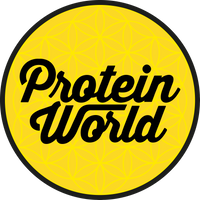
THE MOST GOOGLED QUESTIONS ABOUT PROTEIN SHAKES - ANSWERED!
There is lots of confusion around protein shakes. Will protein make me gain weight? Which type should I be using? When is the best time to have a shake? Fear not… Our Protein World nutritionist has you covered, by answering the most googled questions.
1. Are protein shakes good for weight loss?
Increasing the amount of protein you consume can lead to enhanced fat reduction. Protein is a difficult nutrient to digest therefore the body works harder to break it down in the stomach. This requires more energy and in turn increases your metabolism. Protein also suppresses the hunger hormone Ghrelin, which leads to a reduction in appetite and thus increased weight loss.
2. What type of protein shake is best for me?
There are many different types of protein powders in the market, so try to choose one based on your dietary preferences, tolerances, health and fitness goals:
Whey protein is dairy protein that digests quickly, providing a rapid rise in amino acids that help to increase strength and muscle mass. It also helps to reduce appetite and promote fat loss.
Casein is another dairy protein that is slow-digesting. It reduces muscle protein breakdown and promotes muscle mass growth. It has been shown to aid fat loss particularly when you are on a calorie restricted diet. Due to the slow absorption of protein, this type of protein is good to have before bed.
Plant Based Protein such as Pea Protein has been shown to promote fullness and increase muscle growth as effectively as animal-based protein sources. This is perfect for those who are vegan or suffer from lactose intolerance.
3. When do I drink protein shakes?
Whilst you’ve probably heard of the ’30 minute window’, we actually require protein for up to 48 hours after we’ve worked out. Having a protein shake at the following times will help to optimise muscle growth and repair around the clock: Post Workout Pre Workout Snack If you are looking to lose weight then we recommend using The Slender Blend as a meal replacement. You can replace 1-2 meals per day alongside a healthy balanced diet to create a calorie deficit to kickstart your weight loss.

4. Can protein shakes cause weight gain?
Protein shakes on their own won't make you fat, but if you're drinking very high-calorie shakes and not watching your overall calorie intake, they'll make you gain weight. Weight gain occurs when you have a constant energy surplus (consume more calories from food than your body is using for energy/burning off). If you are aiming for weight loss, choose a low-calorie protein shake and either have it on it’s own with water or add nut milk with fruit. Try to avoid higher calorie shakes and don’t add nut butters or whole milks as this will bump up the calories. Most importantly, count the calories from your protein shake as part of your calories for the day. This may require replacing some calories ingested through carbohydrates or fats with calories from protein.
5. Are protein shakes safe during pregnancy?
Although the old adage of "eating for two" isn't entirely correct, you do require more micronutrients and macronutrients to support you and your baby. According to the British Nutrition Foundation, during pregnancy protein requirements increase by appropriately 6g per day. This equates to a total of approx. 75 to 100 grams of protein per day. Protein positively affects the growth of foetal tissue, including the brain. It also helps your breast and uterine tissue to grow during pregnancy. Insufficient amounts of protein have been shown to lead to low birthweight and could even affect the baby’s long term risks of heart disease, diabetes or obesity. Assuming that neither your total protein intake nor your total calorie intake is excessive, protein shakes can be beneficial in meeting the nutritional needs of pregnant women. It’s important for you to get enough calories to sustain your baby’s growth and development, pregnancy is no time for dieting! But excessive weight gain during pregnancy can be just as harmful. Protein shakes can often have lots of hidden ingredients so try to pick a protein powder that is clean, organic and doesn’t contain a long list of ingredients. A safe option is Whey Protein Concentrate. Remember that every pregnancy is different and you should always consult with your GP before making chances to your diet or using supplements.

6. How do protein shakes work?
Protein has many different functions within our body, but a predominate function of dietary protein is to repair and rebuild the tissues of our body. Without protein, our muscles would not be able to contract, heal and grow. Tiny muscles tears are a natural consequence of exercise. In order to rebuild your muscles fibres to be stronger they require the protein building blocks called amino acids. Protein shakes are a quick way of supplying our damaged tissues with amino acids. In just 30 minutes of ingestion, the amino acids can reach our muscles and begin to rebuild the damaged tissue.
7. How much protein shake should I take?
Protein intake should be individual to the person. Requirements will vary depending on a person’s weight, age, medical history, level of physical activity, and goals. If you are looking to lose weight you should aim for around 1.4 - 1.6g of protein per kilogram of body weight. For example, if you weigh 70kg - 1.6 x 70 = 112g of protein per day. If you are looking to bulk up and build muscle your protein requirements may be higher (between 1.8 - 2.0g per kg body weight). Protein intake should be distributed evenly throughout the day. Our bodies can only absorb up to 30g of protein in one sitting, therefore we should aim to have 4-5 protein feedings a day. This is where shakes come in handy, preparing 4-5 protein rich meals from whole foods can be very time consuming. Preparing 2-3 meals from whole foods and having 2 shakes is a substantial way of getting your protein intake.
8. Protein shake vs food
Whatever your aim is, protein shakes should never replace food completely. One advantage to getting protein from a variety of sources, including meat, poultry, fish, and plant-based sources is that you get a better range of nutrients that way. The following foods are good examples of high protein foods that you can use your protein shake alongside: 120g Chicken Breast = 27g of protein 140g Salmon Fillet = 28g of protein 100g Lentils = 8g of protein One handful (30g) Mixed Nuts = 7g of protein When we get back from the gym or rushing out of the house, we don’t always have time to prepare these foods. This is where protein shakes come in handy. They are quick and easy to prepare and also takes less time for the protein to be digested, broken down and delivered to the muscles. If you are looking for weight loss, protein shakes are a low calorie, tasty way to help create a calorie deficit and aid weight loss.

9. Protein shakes for women
The misconceptions are that protein powder is reserved for bodybuilders. However, this kind of muscular physique requires years of hard and specific training and dieting. Women are not built in the same way as men, we do not have the same testosterone levels as men therefore we can't stack on the muscle like men do. However, if you were to increase your protein intake and lift weights you are likely to achieve a lean, toned body.
10. Can protein shakes be used as a meal replacement?
Most people would use meal replacement as part of a weight loss programme. Whilst most other meal replacements are not filling, whey protein powders can be an exception. This is because protein is more satiating than fats or carbohydrates. Some protein meal replacements can contain up to 30g of protein per serving. One disadvantage of using a protein shake as a meal replacement is that they are not as nutritious as whole foods you might eat at a regular meal. Therefore If you are looking to use protein shakes as a meal replacement, check the label to see if they contain added vitamins and minerals or add fruits and vegetables and make it into a smoothie. The Slender Blend has been formulated with 26 vitamins and minerals to ensure that you are not lacking in vitamins and minerals and also contains added fibre to help keep your digestive system moving! Protein shakes are great to create a calorie deficit and aid weight loss however should be used in conjunction with a balanced diet. They can’t serve as an adequate substitute for all meals as it could lead to nutrient deficiencies and digestive issues.




